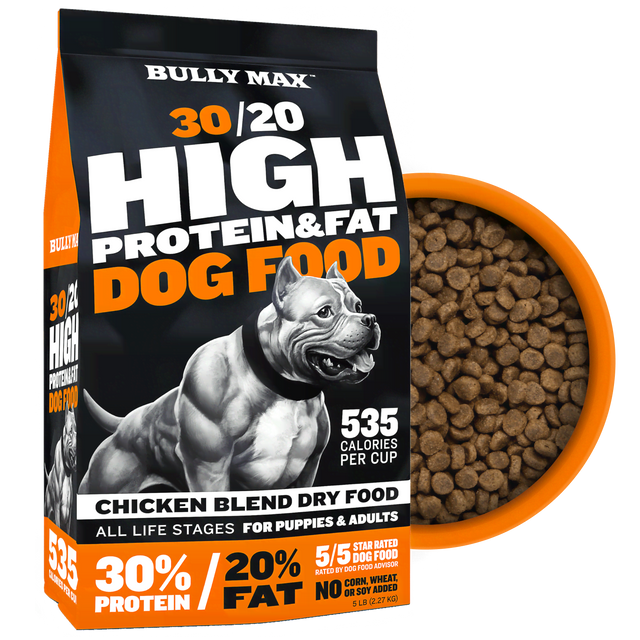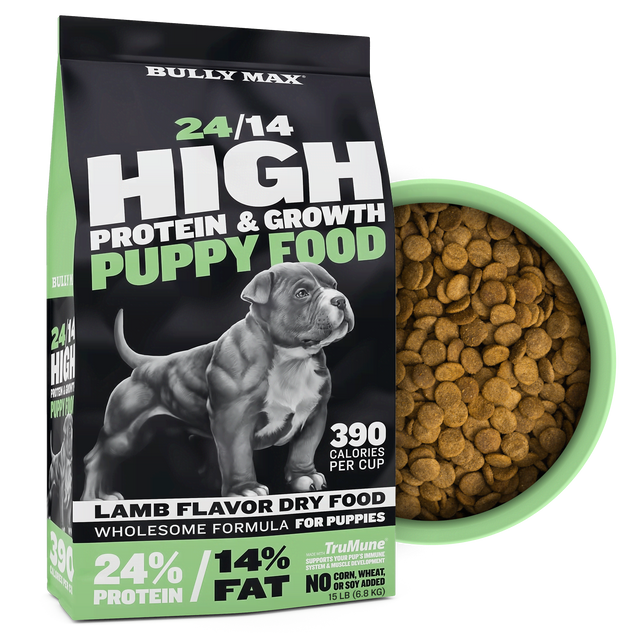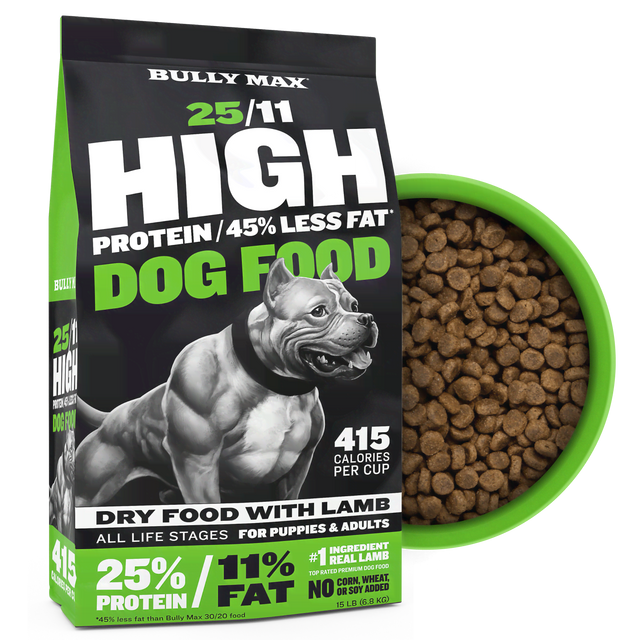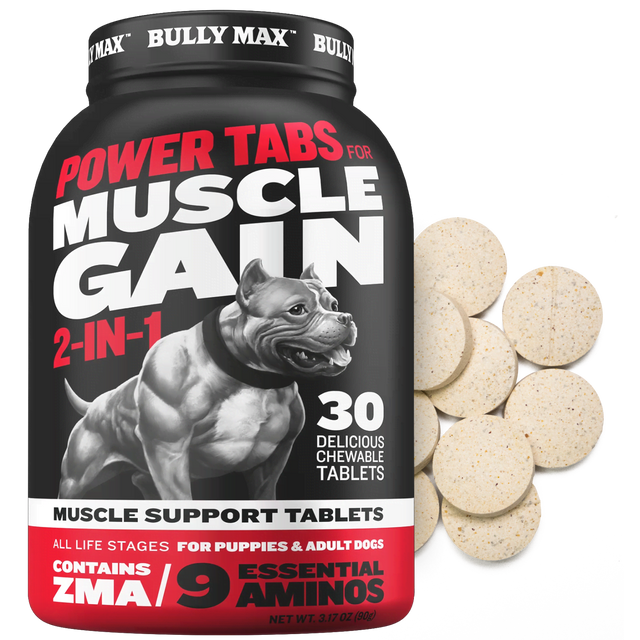Meat-Based Dog Food: Why It’s the Best Source of Protein for Your Dog’s Health
The process of formulating high-quality dog food is complex. From nutritional analysis, feed formulation, transporting and processing down to packaging and storing, each step is critical in maintaining quality and safety. Perhaps two of the most important steps are the nutritional analysis and feed formulation wherein the true nutritional value of a dog food is distinguished.
In this article, you will learn about the protein, amino acids and differences between meat-based and plant-based dog foods.
Why Protein is Crucial for Your Dog's Health
One of the macronutrients dogs need to thrive is protein. It is important for supplying amino acids to build muscle, tendons, ligaments, skin and coat, nails, and cartilage. Protein is also needed to produce hormones and enzymes for various metabolic processes of the body.
Protein deficiency in dogs is a serious condition. It happens when a dog has a serious chronic illness or there is a significant lack of protein in the diet. This may cause muscle wasting, stunted growth, lethargy, weight loss, and poor digestion. If left unaddressed, it may lead to fluid build-up in the chest or abdomen due to systemic abnormalities.
Meat-Based vs Plant-Based Dog Food: Which is Better for Your Pet?
Protein can be sourced from animals (meat-based) and plants (plant-based) and. These two sources differ in a couple aspects.
Firstly because dogs are naturally carnivorous, their gastrointestinal tracts are designed to absorb proteins effectively from meat-based sources. They have a relatively short digestive tract with a simple stomach, long canine teeth and a tight digitation of molars that are all designed for consuming and digesting meat. Through domestication, dogs have been able to thrive from plant-based sources as well. However, they may not efficiently be able to absorb the desired protein necessary from large quantities of plant-based ingredients alone. These diets have an increased amount of indigestible fiber which cause dogs to suffer from digestive upset, including diarrhea, vomiting, and flatulence.
The second difference is that animal-based sources contain more protein, amino acids and micronutrients than plant-based proteins. Several studies support this data. For instance, a study by Sieja et. al. (2023) showed that high quality meat-based dog food provided the highest quality protein compared to plant-based and animal by-product based dog foods. Furthermore, a separate study by Wakshlage et. al. (2004) concluded that muscle wasting in adult dogs can be associated with the consumption of low protein diets consisting predominantly of corn gluten.

Essential Amino Acids in Dog Nutrition
Amino acids are the building blocks of proteins and are important in repairing muscles, skin, and other tissues, as well as transporting nutrients throughout the dog’s body. Dogs require 22 amino acids in total to make necessary proteins that their bodies require. Some of these amino acids are called non-essential amino acids and can be made by dogs when they need it. The rest of the needed amino acids are sourced from their diet. It is therefore important that their diet contains all the amino acids they need.
Meat-based proteins are complete proteins which means they contain all essential and non-essential amino acids. In fact, a study by Li and Wu (2023) concluded that complete proteins, like those found in meat-based diets, alleviate aging-associated reductions in the mass and function of skeletal muscles and bones in dogs. On the other hand, most plant-based proteins are incomplete proteins. In most cases, purely plant-based dog food requires amino acid supplementation to supply the required amino acids dogs need.
Bully Max: High-Quality Meat-Based Nutrition for Dogs
Bully Max 30/20 High Protein & Fat Dog Food is a meat-based dog food formulated to deliver the highest quality of proteins and amino acids to your dogs. By choosing Bully Max, you're providing your dog with a scientifically formulated diet that not only meets their basic nutritional needs but also supports their overall health, performance, and longevity. Whether you have a growing puppy, an active adult dog, or a small breed, Bully Max offers a solution that utilizes the power of meat-based nutrition backed by years of research.
Expert Veterinarian Statement: The Science Behind Meat-Based Dog Food
“As a veterinary nutritionist, my primary concern is the health and well-being of pets. I have carefully reviewed the studies and data presented in this article. Based on these, Bully Max 30/20 stands out as one of the top choices for pet owners seeking a high-quality, nutrient-dense food for their dogs. I am confident in endorsing Bully Max products for their excellent nutritional profiles and their ability to support optimal health in dogs.” - Dr. Irah Pearl Acierto, DVM
Summary of Top 5 Benefits of Meat-Based Dog Food
Meat-based dog food offers superior nutrition for canine health and well-being. The top 5 benefits include:
- Complete Protein Source: Meat provides all essential and non-essential amino acids dogs need for optimal health, supporting muscle development, tissue repair, and vital bodily functions.
- Enhanced Digestibility: Dogs' carnivorous digestive systems are specifically designed to process meat efficiently, reducing the risk of digestive upset common with plant-based diets.
- Muscle Maintenance: High-quality meat protein helps prevent muscle wasting, particularly crucial for active and aging dogs, as demonstrated in studies by Wakshlag et al. (2004).
- Superior Amino Acid Profile: Meat-based proteins offer a more comprehensive amino acid profile compared to plant-based sources, alleviating aging-associated reductions in muscle and bone mass (Li and Wu, 2023).
- Overall Health Support: The rich nutrient content in meat-based dog food contributes to various aspects of canine health, including skin and coat condition, immune function, and energy levels.
By choosing a high-quality, meat-based dog food like Bully Max 30/20, pet owners can ensure their dogs receive the optimal nutrition needed for health, performance, and longevity. As confirmed by veterinary nutritionists, meat-based diets stand out as a top choice for dogs of all life stages.









